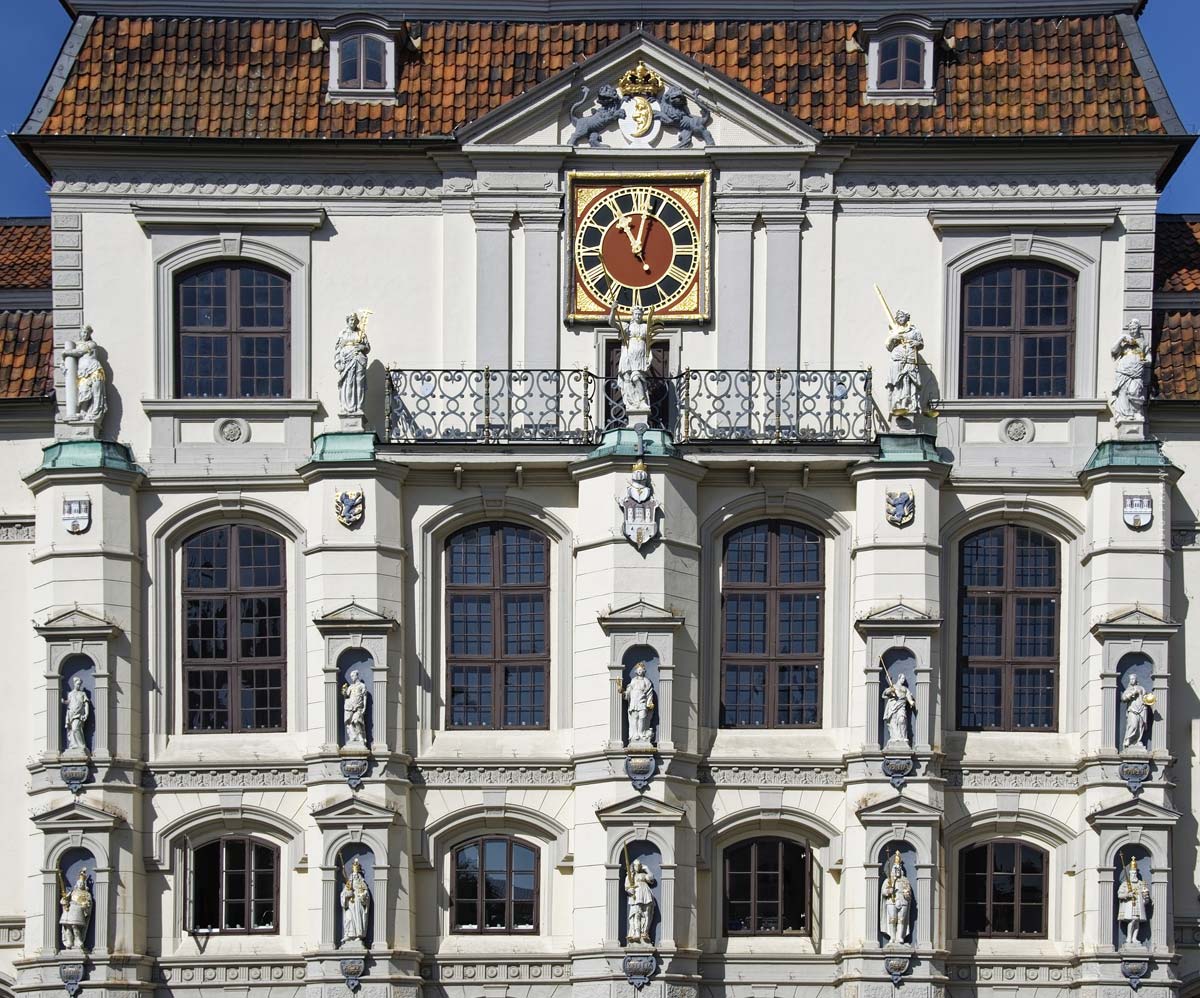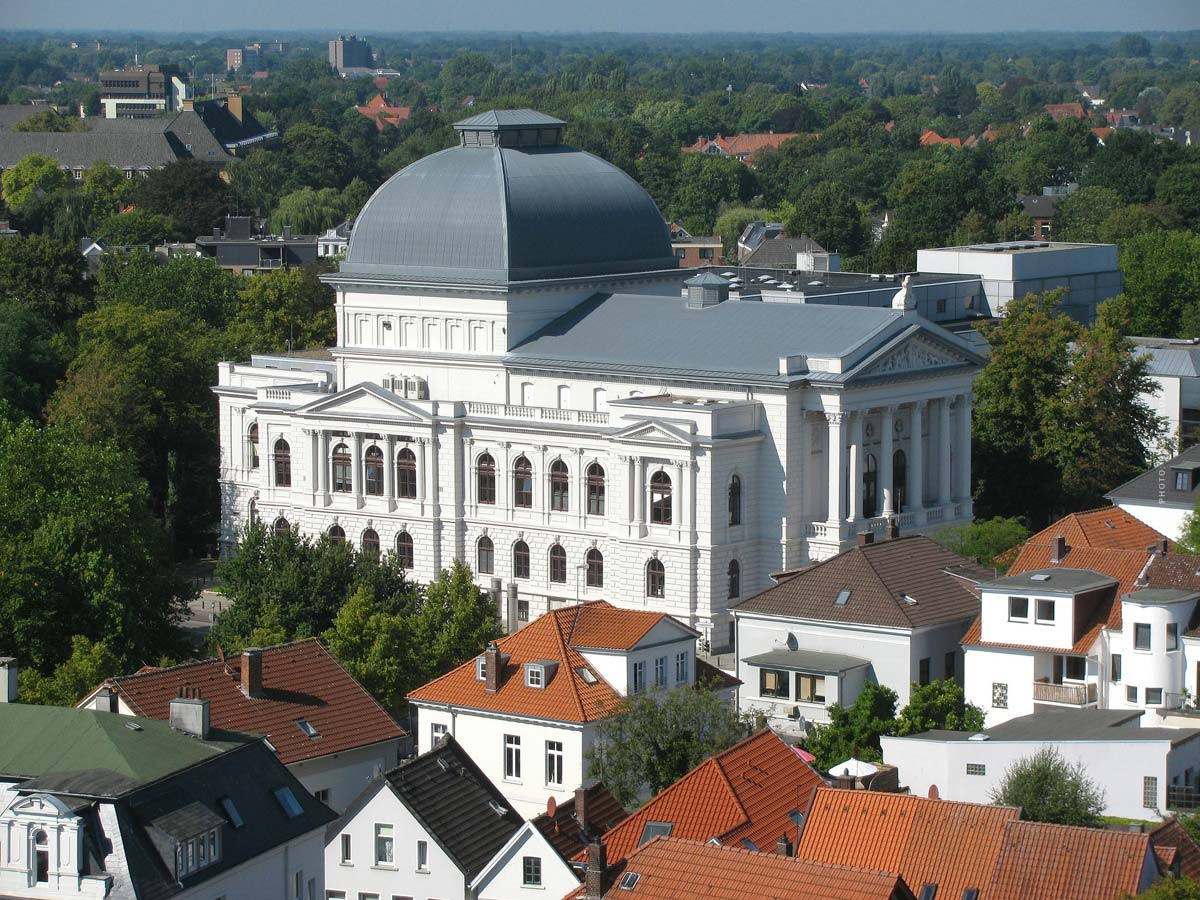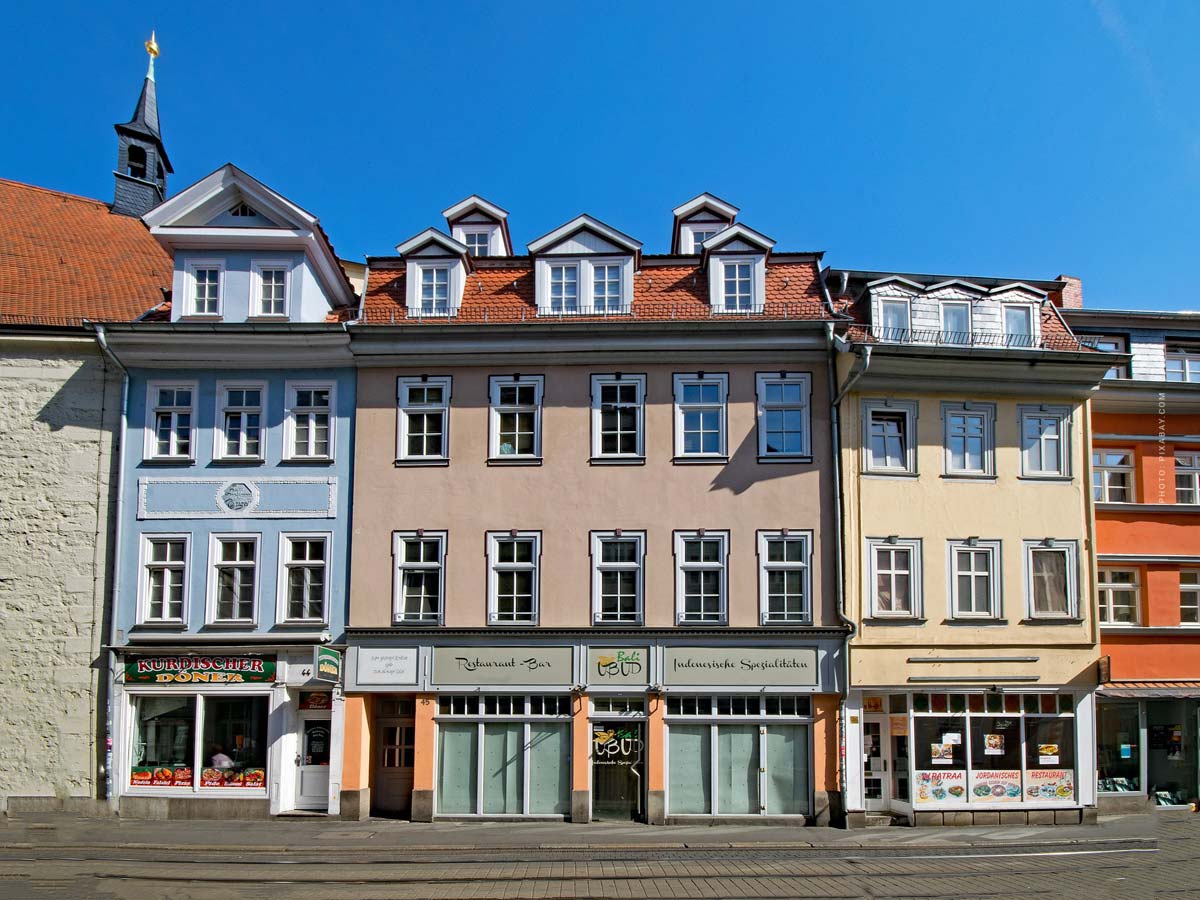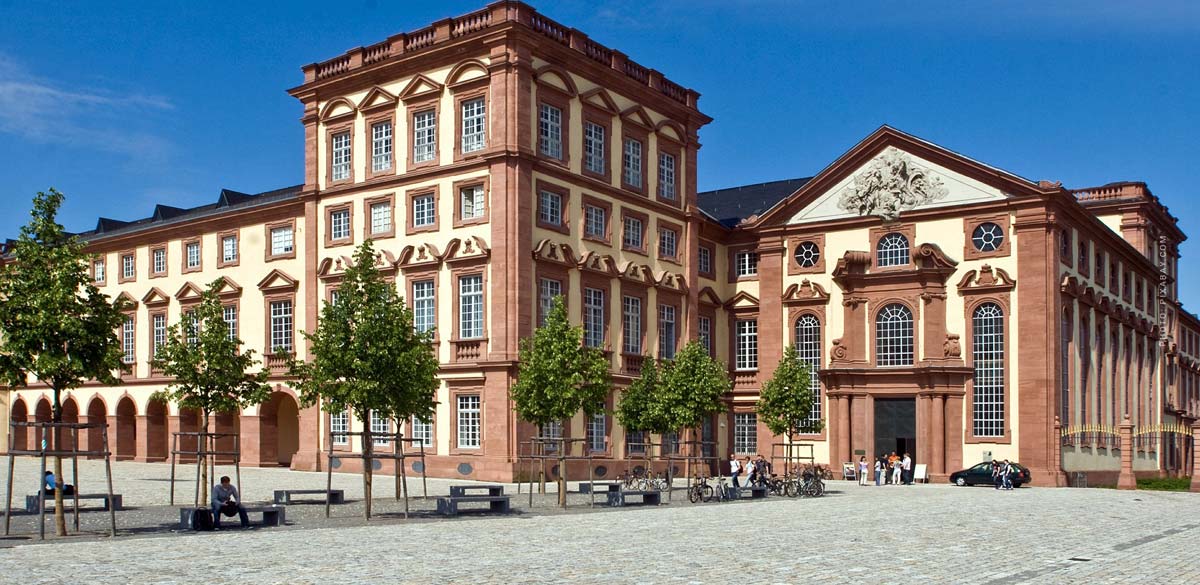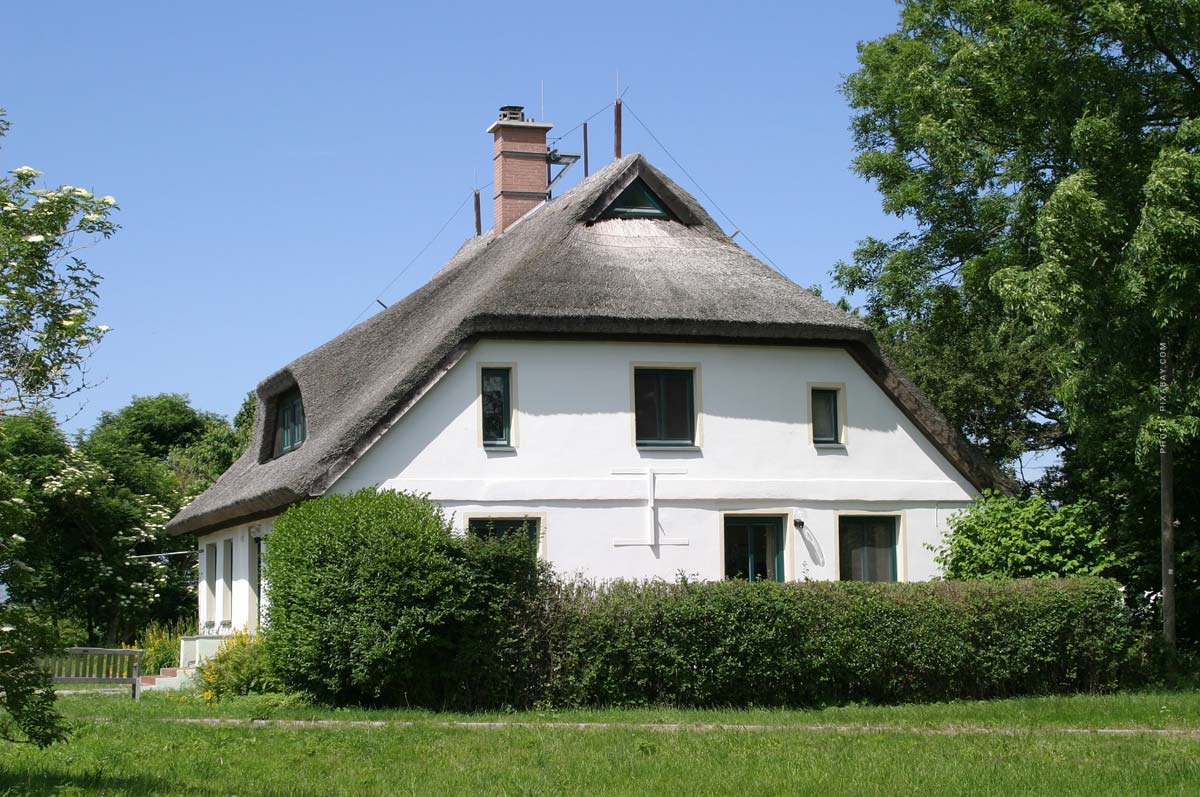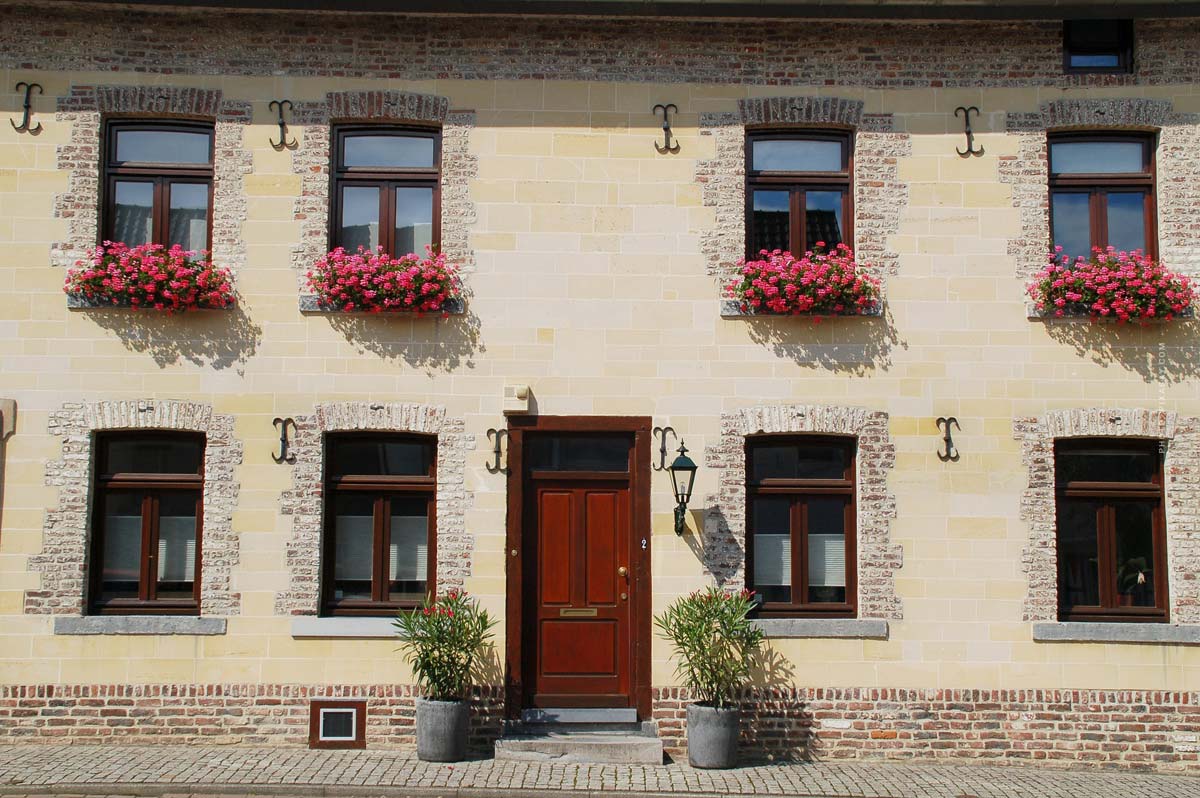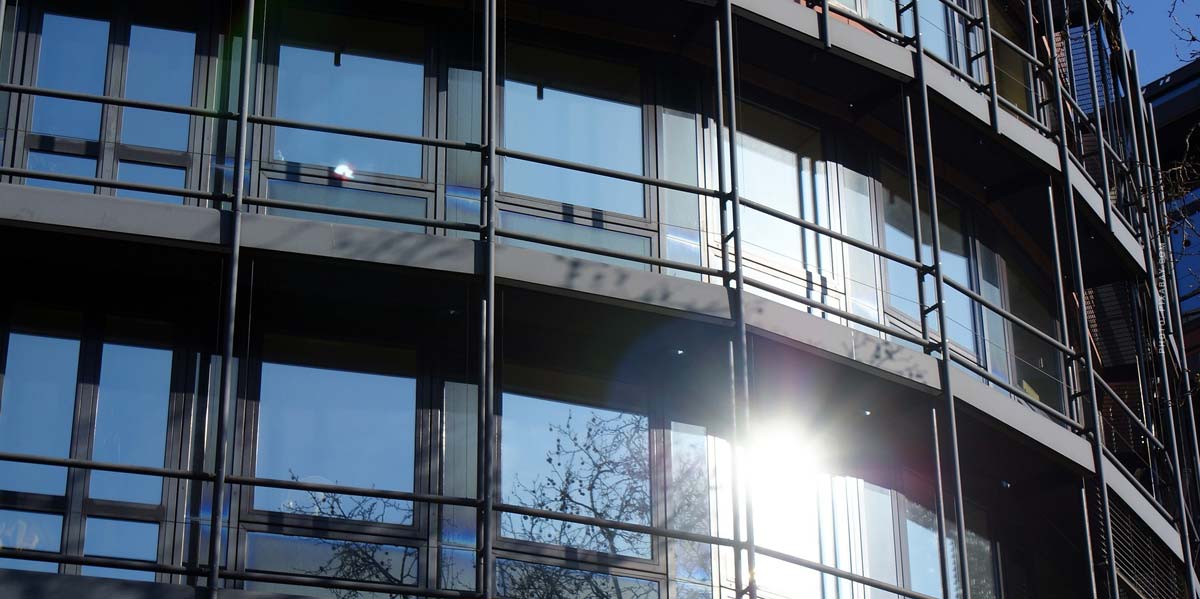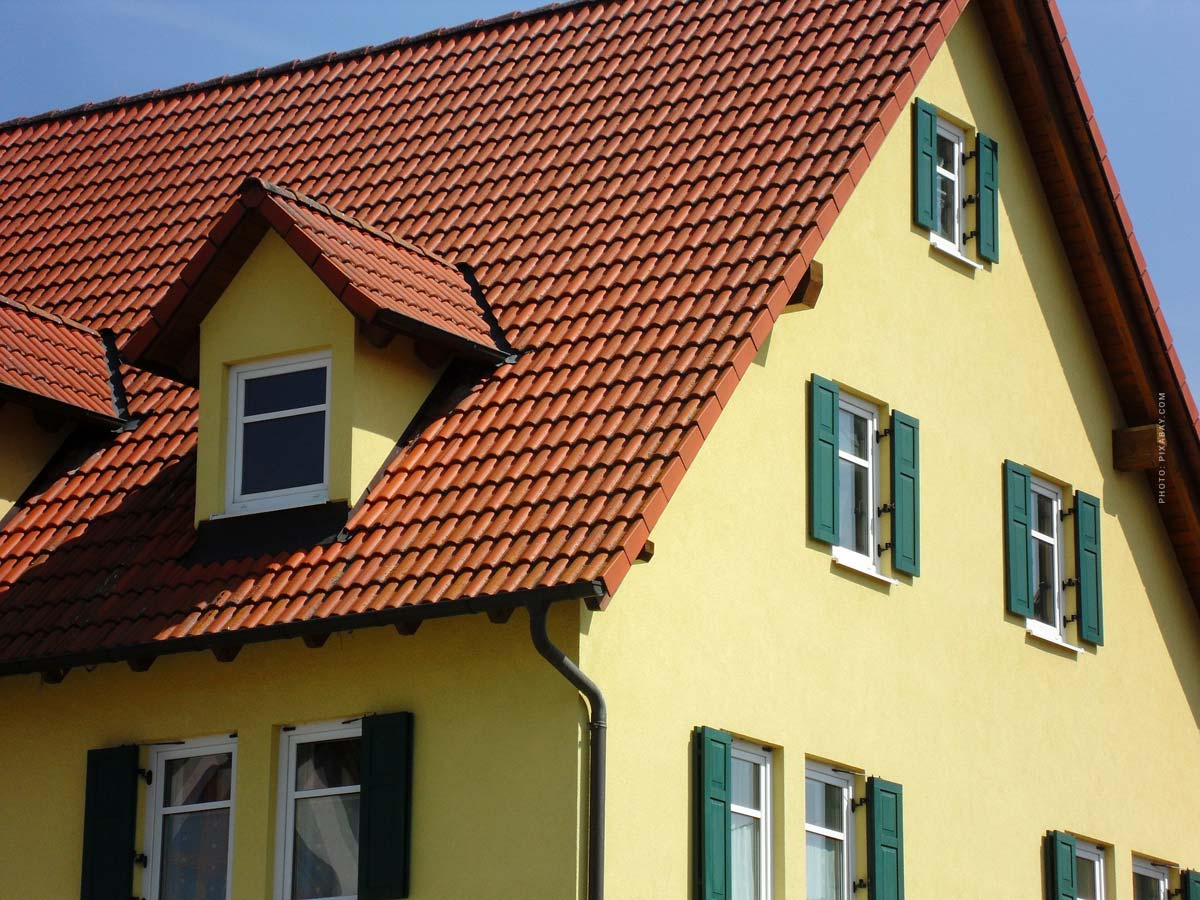Real estate agent interview Düsseldorf: H. Robiné about prices, the real estate market and investment tips
Real estate agent Düsseldorf – Harald Robiné is one of the most successful real estate agents in Düsseldorf. His company ROBINÉ Projektmanagement, based on the Düsseldorf Rhine, has stood for the brokerage of premium properties and first-class customer service since 1989. Through his large network of professional and private contacts, Mr. Robiné tries to make his clients completely happy and to find the right property for everyone. He is a qualified business economist with many years of experience as a real estate agent. ROBINÈ Immobilien sells almost exclusively residential properties in the luxury segment. In this interview, Harald Robiné talked to us about the Düsseldorf real estate market, his most spectacular property, costs, taxes and real estate financing. Benefit from tips & know-how of an expert and learn more about real estate and the market in Düsseldorf here.
Real estate agent Robiné about the Düsseldorf real estate market, experiences & tips
Harald Robiné has made a name for himself with his company in Düsseldorf and beyond the city limits as a competent and exclusive real estate agent. ROBINÉ Immobilien attaches great importance to quality and customer service, and has specialised in the brokerage of premium properties. In addition to the brokerage and marketing of real estate, ROBINÉ Projektmanagement’s services also include the acquisition of land, the conversion & refurbishment of existing buildings, project development and management, as well as the turnkey construction of high-quality new buildings in the best locations in Düsseldorf.
In the interview, the real estate agent shared tips and tricks with us, talked about investments and he also gave us his assessment of what to consider when buying a property. Learn more about real estate in Düsseldorf and learn from the pros!
Tip! Luxurious living is also possible in Berlin! Take a look at a very special villa by Graft Architekten: Villa M

Brokerage introductions: Popular house types & most spectacular property
FIV: Dear Mr Robiné, before we go into the many details of Düsseldorf: As a real estate agent in Düsseldorf, what type of house or apartment do you most like to broker? Are there any favourites, for example the normal 3-room apartment, the loft or rather the luxury property on the outskirts of the city?
Robiné: The first property I brokered more than 25 years ago was a luxurious villa owned by a renowned Düsseldorf entrepreneur. Thanks to my good contacts and innate sales talent, I was able to successfully market the property within a short time and quickly made a name for myself in Düsseldorf. After that, everything happened very quickly, I was offered one villa after the other for marketing and included in my portfolio.
However, this does not mean that we only broker premium properties today. Well-maintained detached houses in suburban locations are just as much a part of our range as courtyards in need of renovation, apartment buildings and commercial properties. Of course, it is much more exciting to broker high-priced properties in the luxury segment than a standard 3-room apartment in the city centre. Whether it’s luxurious villas, stylish loft apartments or classicist townhouses, it doesn’t really matter – ultimately, it’s important that the property has a certain character and represents something special.
- Website: Robiné Real Estate
- Instagram: Robiné Real Estate
FIV: What was the most spectacular property you remember from your years as a real estate agent?
Robiné: The most spectacular property was a historic castle complex from the 11th century. The tenant at the time was a U.S.-born goalkeeper for Borussia Monchengladbach, Kasey Keller. NBC visited the player at his home several times. Through these activities, the German media such as WDR, RTL etc. also became aware of me and the property. At the time, the landmarked property was literally getting quite old and was in dire need of renovation. Like me, the buyer at the time recognised the unique potential of this property and renovated it with great attention to detail for private residential purposes. It was incredible to see the property shine in new splendour a few years later. In an ambience that leaves nothing to be desired, a unique combination of history and modernity was created here.
Where should you move to in Düsseldorf? Districts and tips from the real estate agent
FIV: The majority of our readers are buying a property for the first time. So that our readers have a direct insight into Düsseldorf: If someone newly moves to Düsseldorf and asks you as an expert the question “where should one move to?”, which districts would you recommend for:
- Single / career-oriented? Ober- and Niederkassel, Harbour, Derendorf, Pempelfort, Düsseltal, Bilk
- Families with children? Grafenberg, Gerresheim, Golzheim, Kaiserswerth, Lohausen, Derendorf, Bilk
- Wealthy individuals (real estate prices over 1 million)? Meerbusch, Ober- and Niederkassel, Golzheim, Zoo
Costs & prices for renting or buying a property in Düsseldorf + comparisons
FIV: What costs do you have to reckon with in Düsseldorf when renting, and more importantly when buying an apartment or house? How would you compare Düsseldorf with other cities and which districts are currently particularly attractive?
Robiné: The rents vary greatly depending on the district and the amenities. The cheapest properties in the simple locations start at around €7 per square metre. These apartments are very simply equipped and often there is even a renovation backlog. Even bathrooms from the 70s are not uncommon in such properties. Upwards the borders are open. Furnished apartments in good locations, on the other hand, reach prices beyond 30, – € per square meter. Of course, these are both extremes. The average rent for an existing property in Düsseldorf in 2020 was around €11.40 per square metre of living space, while the average price per square metre for a new-build property was around €14.
- Rents vary greatly according to district and amenities
- Cheap objects from approx. 7 € per m²
- High-quality, furnished apartments in good locations reach prices of 30€ per m² and more
- Average rent for existing property Düsseldorf 2020: €11.40 per m² living space
- Average price per square metre for a new property in Düsseldorf 2020: approx. 14€.
Robiné: It’s no different with condominiums. Here, too, location and furnishings determine the price, of course. While a simple 2-room apartment in the city centre can still be had for just under 250,000 euros, you pay three times that price for a well-equipped penthouse in a preferred location of the same size.
As a guide, the average asking price for existing apartments in 2020 was around €4,400 per square metre, while the average asking price for new builds was around €7,300 per square metre. Incidentally, the average asking price for detached houses is around 1.2 million euros.
Average bid price 2020 for:
- Existing apartments: € 4,400 per m²
- New buildings: approx. 7,300 € per m²
- Single-family houses: approx. € 1.2 million

Reasons for rising property prices in Düsseldorf
FIV: Rents and purchase prices in Düsseldorf have risen sharply in recent years. In your opinion, what is the decisive factor driving this development most strongly in the Düsseldorf real estate market?
Robiné: Düsseldorf is an extremely economically strong city in the Rhine-Ruhr conurbation. In addition to its central location, important factors include Germany’s third-largest airport and the Düsseldorf Trade Fair Centre with 24 leading international trade fairs. Düsseldorf is a leading location in the advertising, European patent, telecommunications and management consulting industries, as well as Germany’s “City of Fashion”. Our state capital is a globally oriented metropolis. Numerous internationally active companies and foreign firms have their headquarters in Düsseldorf.
The fact that the state capital of North Rhine-Westphalia is so popular as a place to live and work is certainly also due to the high quality of life on site. For example, the Rhine metropolis repeatedly takes one of the top places in various rankings for assessing economic strength and future viability.
As in most other major cities, Düsseldorf is experiencing a large influx of people from Germany and abroad. Since 2010, the demand for housing has increased permanently. However, land for the development and construction of new residential areas in the Düsseldorf urban area is scarce. Thus, the low supply of affordable housing combined with the high demand is constantly driving up prices in Düsseldorf.
FIV: As an expert of the Düsseldorf real estate market, would you currently recommend an investment in property or wait?
Robiné: In principle, I would always recommend investing in property, as tangible assets are sustainable and stable and the low interest rate policy encourages the purchase of property. In addition, there is the steady increase in the value of real estate. With a property you invest in your future and build assets for your retirement. Rental costs, on the other hand, are lost capital.
“Generally, I would always recommend investing in property as tangible assets are sustainable and enduring and the low interest rate policy encourages the purchase of property. In addition, there is the steady increase in property values.”
Where should you invest as an investor in Düsseldorf? Tips from the expert
FIV: Another look at those who want to invest and rent. As a real Düsseldorf insider, which districts are currently experiencing an upswing and are particularly interesting for capital investors / investors? Which districts are exciting for landlords and investors here?
Robiné: For capital investors, properties in the simple locations south of the city centre, such as Oberbilk, Wersten, Holthausen and Eller, are particularly interesting. Here, the price level is currently still relatively low compared to the other districts of Düsseldorf. Property prices for multi-family houses already start at around 2,000 euros per square metre. Since a rapid increase in value can also be assumed here in the future, these locations offer particularly good investment and yield opportunities.
Properties in central locations such as Bilk, Derendorf, Pempelfort, Düsseltal and Stadtmitte are also of interest. These parts of the city currently still have a rather average price level, but are very popular due to their central location and urban character. However, some of the prices per square metre are already almost twice as high as in the more modest locations.
- Simple locations with appreciation potential: Oberbilk, Wersten, Holthausen and Eller
- Medium-sized locations that are very popular: Bilk, Derendorf, Pempelfort, Düsseltal and Stadtmitte.
Real estate agent: advantages & disadvantages, costs and when to hire an agent?
FIV: According to statistics, well over 50% of all properties in Düsseldorf are bought / sold with an estate agent. From your point of view: When should one search privately and when should one hire a professional real estate agent for the search? Where are the advantages and disadvantages?
Robiné: Many owners and buyers underestimate the effort involved in selling / buying a property. For example, numerous documents such as energy certificates, floor plans, building and contamination information or the land register must be submitted in order to successfully complete the sale. The real estate agent is familiar with all these requirements and covers all the necessary activities such as dealing with the authorities. Furthermore, he accompanies the seller and the buyer from the beginning and is still available for them after the conclusion of the sales contract. For this reason, I would always advise a layman to use the services of a real estate agent. A reputable real estate agent knows the local real estate market exactly and also supports the customer in finding a realistic purchase price.
I can’t think of any disadvantages. In most cases, the broker is commissioned by the owner of the property. However, since as a service provider he also represents the interests of the potential buyer, the buyer also pays a commission to the agent after the conclusion of a purchase contract. A new law, which came into force in December 2020, stipulates that in cases of dual consultancy, the owner and the buyer share the broker’s commission equally, mostly 3.57% incl. VAT of the notarised purchase price nationwide.
- Broker commission nationwide mostly 3.57% incl. VAT of the notarized purchase price
- Since 2020 law: owner & buyer share the brokerage commission in case of double consultancy half

Common mistakes & tips for buying your first property
FIV: As I said before, the majority of our readers are first-time buyers. What are the mistakes that first-time buyers typically make? Conversely, as an expert, what advice would you give to someone buying his or her first property?
Robiné: A mistake is often that real estate – as far as the purchase is not accompanied by a broker – is bought hastily and the buyer has not considered, for example, all technical data, a possible renovation backlog and special features of a property. Here it can come after a purchase to bad surprises. I recommend interested parties who are not familiar with the area to first rent a property in order to then calmly familiarize themselves with the individual districts and the available opportunities in the real estate market.
Real estate financing: equity, options & recommendations of the professional
FIV: What financing options for a property would you most likely recommend in Düsseldorf – or in general – what options do first-time buyers have?
Robiné: This depends primarily on the respective creditworthiness of a buyer. With the currently very low interest rates on loans, a loan from a bank is recommended. A real estate loan is a big financial and for many also a unique decision. All the more important it is to know the right financing partner at his side. Trust also plays an important role here. Therefore, it is understandable that many real estate buyers turn to the advisor of their house bank for construction financing.
Alternatives to the various banks are intermediaries. They compare the offers of many large banks for you and can sometimes offer you more favourable interest rates and better conditions.
FIV: How much equity should you have and what other factors influence financing / creditworthiness? What tips can you give as an expert from your experience?
Robiné: When it comes to equity, there is a simple basic rule: the more you bring in, the better, because bringing in your own money significantly reduces the financing risk. That’s why banks grant lower interest rates for financing with equity. Without equity, the interest costs can be twice or even three times as high. The existing equity should be at least between 20% and 40% of the purchase price, including incidental purchase costs. In addition, a buffer should also be set aside for maintenance reserves. Furthermore, a secure professional position should of course be a matter of course.
- Financing with equity: Bank grants lower interest rates
- Without equity, interest costs can be twice or even three times as high
- Existing equity capital should amount to between 20% and 40% of the purchase price incl. ancillary purchase costs
- Ideal: Financial buffer for possible maintenance measures
There is also the possibility of financing without equity, but this is associated with greater risks. This is because full financing runs over a longer period of time, and interest and repayments are considerably higher. Should it come to the foreclosure of your property, you are left with a mountain of debt. Therefore, it is advisable to buy a property only if you have sufficient equity available.
“The more equity you bring to the table, the better! That lowers the financing risk.”
Incidental purchase costs: land transfer tax, notary, broker’s commission
FIV: In addition to the purchase price, there are of course ancillary costs. A big factor for buyers are taxes. What taxes do buyers in Düsseldorf have to reckon with when they buy a house on the outskirts of the city or a condominium in Düsseldorf’s city centre?
Robiné: In NRW, the land transfer tax on the purchase of a privately used property is always 6.5% of the purchase price, regardless of whether it is a detached house or a condominium in an apartment building. For the registration in the land register and the notary approx. 1.5 % must be applied. If the purchase is made through a real estate agent, the buyer usually has to pay 3.57% incl. VAT of the notarized purchase price. Summa summarum one must plan thus on top approx. 11.5% of the purchase price as acquisition additional costs. Depending on the amount of the purchase price, there are quite a few additional costs, which should not be underestimated.
- Land transfer tax in NRW: Always 6.5% of the purchase price
- Entry in the land register and notary: approx. 1.5 %.
- Broker commission: usually 3.57 % incl. VAT of the notarized purchase price
“You should plan for about 11.5% of the purchase price as acquisition costs!”
FIV: Thank you very much for this competent and detailed interview Mr. Robiné. We wish you, your company and your team all the best!
Tip: To buy property or not? Big cities in comparison
Many people play with the idea of buying a property in one of the popular cities. These cities include Berlin, Hamburg, Cologne, Düsseldorf and Munich. But to find the right property is not so easy and as a layman it is often difficult to assess whether it is worth investing in an apartment or a house as an investment. We have conducted an interview with an expert for you.

